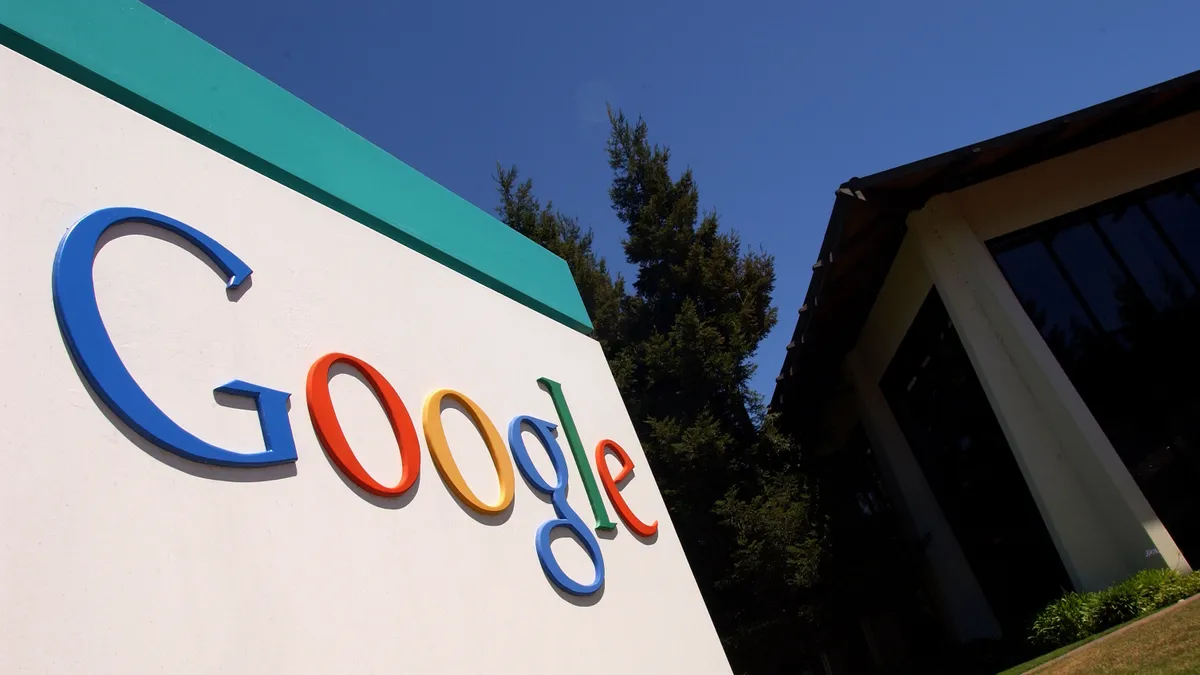Dive Brief:
- Google is abandoning its plans to offer checking accounts to its users in partnership with banks and credit unions, a project the tech giant announced almost two years ago.
- The decision to drop the project, first reported Friday by The Wall Street Journal and confirmed to Banking Dive by a Google spokesperson, comes after a series of delays and the March departure of Caesar Sengupta, the Google Pay executive who headed the project. The missed deadlines and Sengupta’s departure prompted the search engine behemoth to scrap the project, sources told the Journal.
- "We’re updating our approach to focus primarily on delivering digital enablement for banks and other financial services providers rather than us serving as the provider of these services," a Google spokesperson said in an email to Banking Dive. "We strongly believe that this is the best way for Google to help consumers gain better access to financial services and to help the financial services ecosystem connect more deeply with their customers in a digital environment."
Dive Insight:
Google’s plans to offer co-branded checking accounts in partnership with financial institutions highlighted its desire to push into the consumer financial services space. Reports of the project first surfaced in November 2019.
The company’s portfolio of institutions grew to 11 by November 2020, with Citi, Stanford Federal Credit Union, BM Technologies and BBVA USA announcing they had signed on as partners for the project.
When the tech company revamped its Google Pay app last year with features to allow users to pay friends, track and manage budgets, and receive insights on their spending, it said the new version would let customers open the "Plex" checking and savings accounts through its partner banks and credit unions.
"We are obviously disappointed but are investing heavily in our own product and marketing and are very excited about our future," Luvleen Sidhu, CEO of BM Technologies, formerly known as BankMobile, said Monday.
Citi, whose branch presence is slighter than most big banks, was the largest financial institution to sign on to the project, and likely would have benefited from Google's reach, as the tie-up could have helped the bank draw more customers without having to expand its brick-and-mortar footprint.
"Google brings the Google experience, which is really unique, and its technology capabilities, as well as nationwide access to a large group of customers," Anand Selva, who heads Citi’s consumer bank, said during CB Insights’ virtual Future of Fintech conference last year.
Banking Dive reached out to Citi for comment on Google’s plans to scrap its Plex project but did not receive a response.
Seattle Bank President and CEO John Blizzard said the partnership would have allowed the $730 million-asset bank to tap a new demographic.
"This is a digital-first client, less complexity, if you will, than our traditional commercial clients," he told Banking Dive in November. "That's a new growth opportunity for us to serve that clientele with an amazing product and do that efficiently."
He likened the partnership with Google to a "Tesla-Peloton" experience that doesn’t currently exist in the banking sector.
"It's a great way to combine one of the best tech companies in the world, particularly on user experience, along with our local brand," he said at the time.
Google’s banking ambitions, however, "alarmed" some industry observers.
In a statement last year, Graham Steele, a senior fellow at the American Economic Liberties Project (AELP), said an expanded banking and payments business would allow Google to "further consolidate its market power by offering preferential terms to customers, retailers, and banks for using its full suite of marketplace and financial services."
"This will allow Google to commingle its digital marketplace with consumers' financial data, centralizing sensitive information, raising privacy and pricing concerns, and increasing the risks of data breaches and abuse," he said.
Bank regulators, however, supported the project and played no role in Google’s plans to abandon the Plex accounts, sources told the Journal.
The company told regulators before notifying all of its banking partners that it wasn’t moving forward with the product, some sources said.












